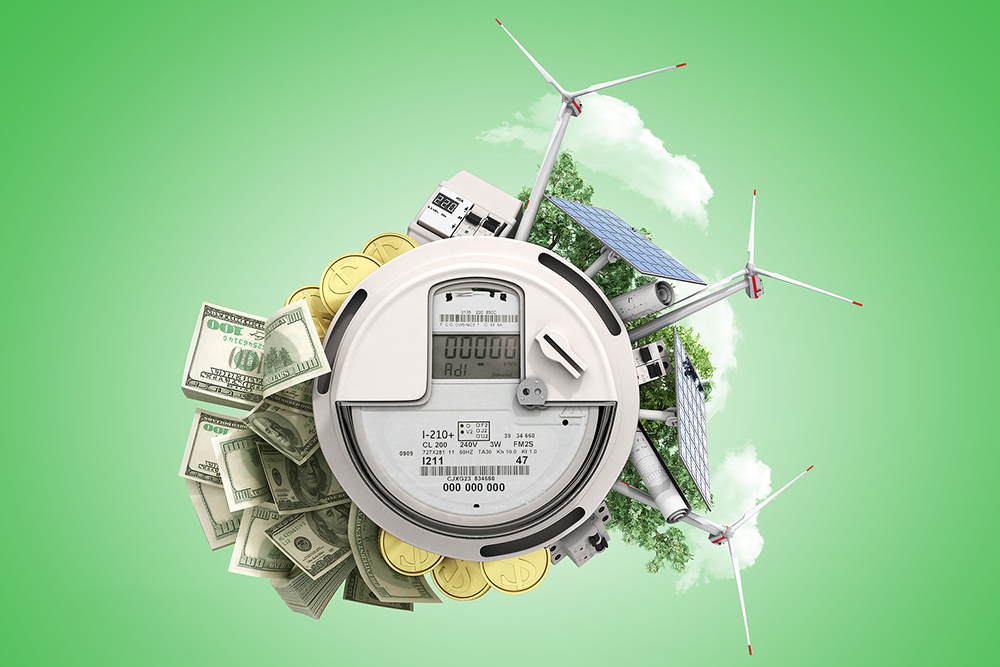Streamlining home assessments for energy justice

Prof. Johanna Mathieu is part of a team that has been awarded an NSF CIVIC planning grant to design a common home assessment pilot for a variety of decarbonization, electrification, and renewable energy integration programs. The goal is to better connect low-income families of color in Detroit with available public resources that support housing and energy security.
“The fundamental research questions are more on the social science side, but that affects how we design technologies and incorporate equity and fairness into the engineering work,” Mathieu said. “When we control things and optimize things and make things work better in the grid, we need to consider the inequities that exist. We don’t want to make things worse. Hopefully we can make things better.”
When we control things and optimize things and make things work better in the grid, we need to consider the inequities that exist.
Prof. Johanna Mathieu
The project is led by research and development organization Pecan Street Inc. and is a collaboration with the Detroit-based non-profits, Ecoworks and Jefferson East Inc.
“Pecan Street’s goal is to find energy solutions that protect the climate and address historic energy inequality,” said Pecan Street CEO Suzanne Russo. “This project will help identify ways to include everyone in our clean energy future.”
On average, communities of color pay higher costs for energy than white households, which is known as the “energy burden.” This can lead to energy insecurity, or the inability to adequately afford their energy costs. There are many programs dedicated to addressing and mitigating the energy burden, such as the Federal Weatherization Assistance Program (WAP), DTE’s Energy Efficiency Assistance (EEA), and the City of Detroit’s Renew Detroit Home Repair program and the Green and Healthy Homes Initiative (GHHI). New programs focused on decarbonization are also expected to be developed.
But each of these programs requires its own assessments, which vary from online surveys to in-person home inspections. Having to complete multiple complex, often redundant, assessments discourages people from enrolling in more programs.
“It would be much better if we had one common home assessment that can collect all necessary information for both current and future programs,” Mathieu said. “With a common assessment, we could also potentially calculate impacts not only to the house, but to the grid itself.”
Weatherizing homes so they lose less heat/energy, transitioning from fuel-based to electric heating, integrating renewable energy sources such as solar panels into the home, and more, not only helps families lower their energy costs, but it also helps advance decarbonization, which is important for climate change mitigation.
“Having more distributed energy resources, such as more solar panels, should help with resilience, especially as disasters caused by climate change impact the grid,” Mathieu said. “If people have their own energy source or storage on site, when the grid goes down, they could still power their home.”
If people have their own energy source or storage on site, when the grid goes down, they could still power their home.
Prof. Johanna Mathieu
Pecan Street is leading the data collection, and Ecoworks and Jefferson East are serving as liaisons with the communities. Ecoworks works to provide services at the intersection of community development and sustainability, with a focus on energy conservation. Jefferson East is a community-based organization that is focused on growing Detroit’s East Jefferson corridor and its neighborhoods.
“This is not a ‘magic bullet’ project by any means,” said Ecoworks Manager Gibran Washington, “but it begins the hard work of asking how to better support all the partners that are working to connect home repair with the widespread decarbonization and electrification of residential homes in Detroit.”
The NSF CIVIC planning grant is offered in partnership with the U.S. Department of Energy and the U.S. Department of Homeland Security.
 MENU
MENU